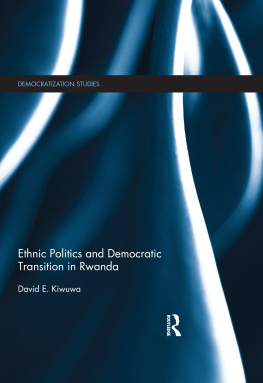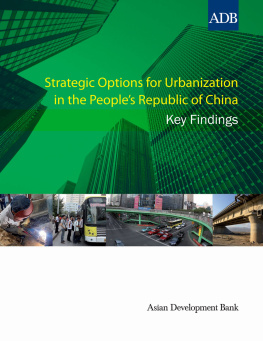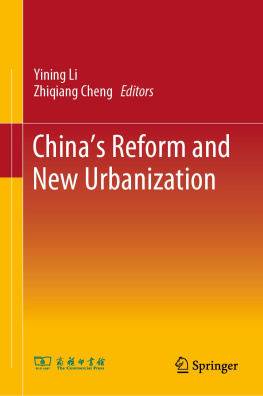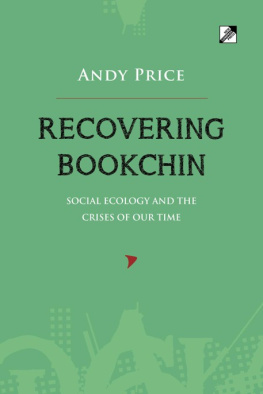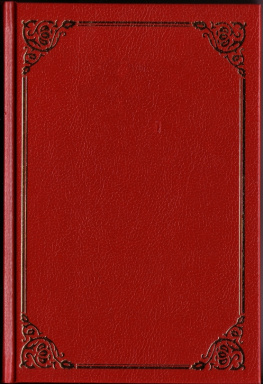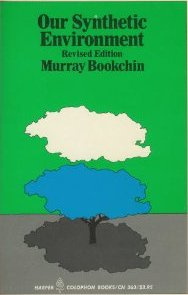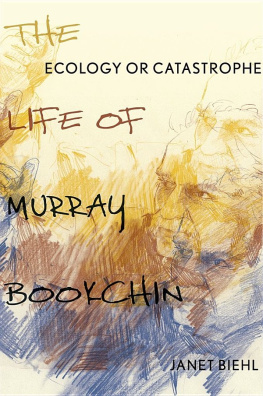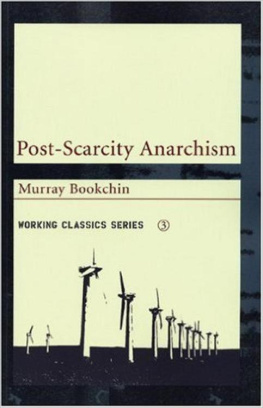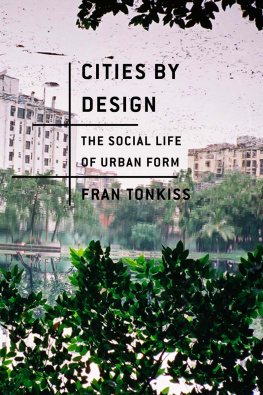The Bookchin Trust - From Urbanization to Cities: The Politics of Democratic Municipalism
Here you can read online The Bookchin Trust - From Urbanization to Cities: The Politics of Democratic Municipalism full text of the book (entire story) in english for free. Download pdf and epub, get meaning, cover and reviews about this ebook. year: 2021, publisher: AK Press, genre: Politics. Description of the work, (preface) as well as reviews are available. Best literature library LitArk.com created for fans of good reading and offers a wide selection of genres:
Romance novel
Science fiction
Adventure
Detective
Science
History
Home and family
Prose
Art
Politics
Computer
Non-fiction
Religion
Business
Children
Humor
Choose a favorite category and find really read worthwhile books. Enjoy immersion in the world of imagination, feel the emotions of the characters or learn something new for yourself, make an fascinating discovery.

- Book:From Urbanization to Cities: The Politics of Democratic Municipalism
- Author:
- Publisher:AK Press
- Genre:
- Year:2021
- Rating:4 / 5
- Favourites:Add to favourites
- Your mark:
- 80
- 1
- 2
- 3
- 4
- 5
From Urbanization to Cities: The Politics of Democratic Municipalism: summary, description and annotation
We offer to read an annotation, description, summary or preface (depends on what the author of the book "From Urbanization to Cities: The Politics of Democratic Municipalism" wrote himself). If you haven't found the necessary information about the book — write in the comments, we will try to find it.
From Urbanization to Cities: The Politics of Democratic Municipalism — read online for free the complete book (whole text) full work
Below is the text of the book, divided by pages. System saving the place of the last page read, allows you to conveniently read the book "From Urbanization to Cities: The Politics of Democratic Municipalism" online for free, without having to search again every time where you left off. Put a bookmark, and you can go to the page where you finished reading at any time.
Font size:
Interval:
Bookmark:
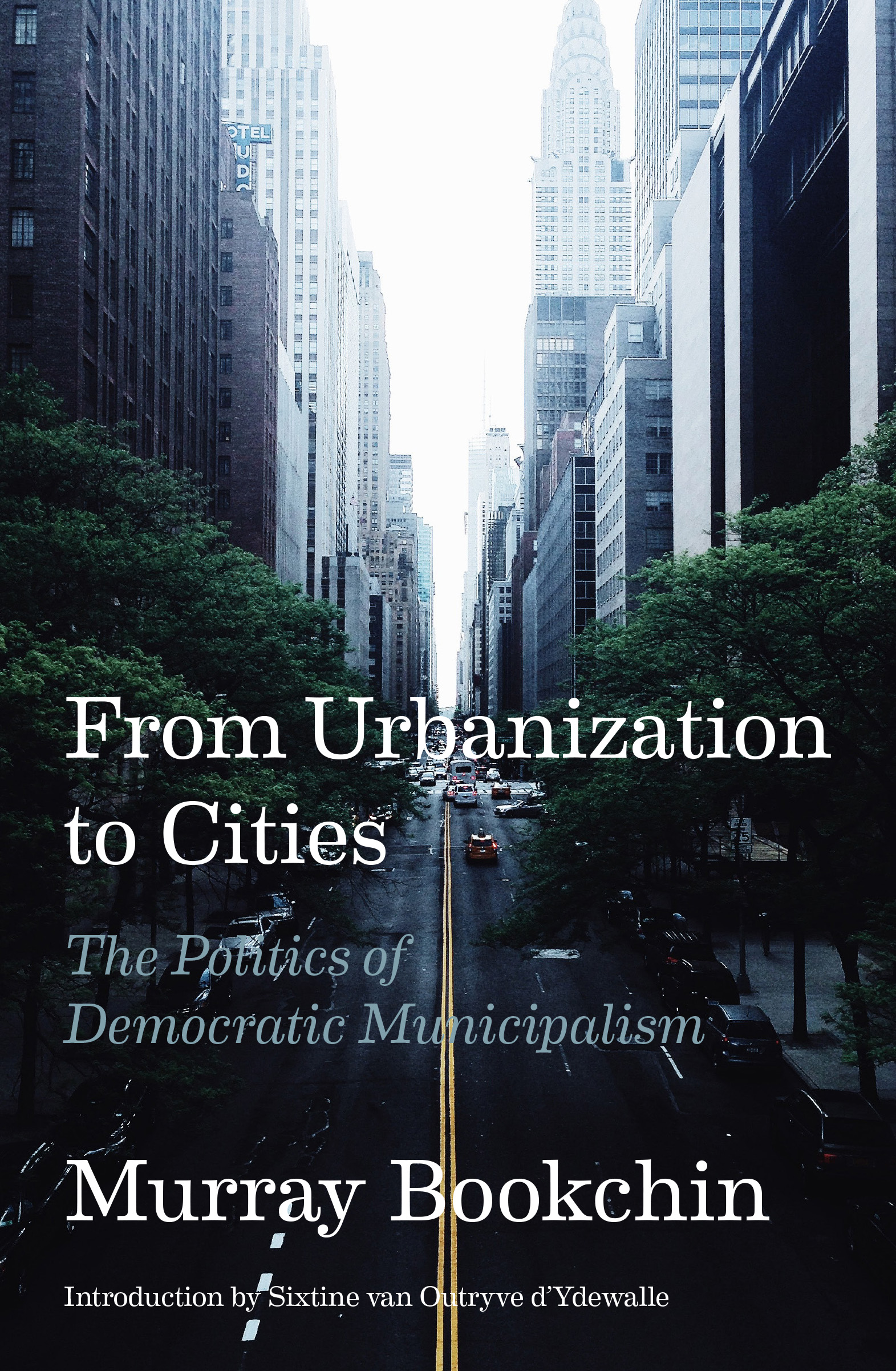
From U r b ani za t i o n
t o Ci t i e s
The Politics of
D e mo c r at i c M u n i cipali s m
Murray Bookchin
Introduction by Sixtine van Outryve dYdewalle
Our Synthetic Environment
Crisis in Our Cities
Post-Scarcity Anarchism
Limits of the City
The Spanish Anarchists
Toward an Ecological Society
The Ecology of Freedom
The Modern Crisis
Remaking Society
The Philosophy of Social Ecology
Defending the Earth
Which Way for the Ecology Movement?
To Remember Spain
Re-enchanting Humanity
Anarchism, Marxism and the Future of the Left
Social Anarchism or Lifestyle Anarchism
The Third Revolution (Vols 14)
Social Ecology and Communalism
The Next Revolution
For Jane Coleman and Dan Chodorkoff
and in memory of Zeitel Kaluskaya (18601930),
my Russian grandmother who raised me and
showed me a world long gone by.
This book, and particularly its title, has had a complicated life, not unlike the important archeological and anthropological discoveries that have occurred since it was first penned more than thirty years ago. Initially presented as a hardcover by Sierra Club Books in 1987 under the title The Rise of Urbanization and the Decline of Citizenship , it was later issued as a paperback in Canada in 1992 under the name Urbanization Without Cities , and finally by Cassell (now Bloomsbury) in 1995 under the current title: From Urbanization to Cities . In each case, my father searched for a more appropriate title, and with each edition, he made changes, some subtle and some major. The most significant occurred in the third edition in the closing chapter, The New Municipal Agenda, where he sought to internationalize certain political questions previously discussed in the context of the United States by examining similar developments in Britain and the European continent. He also added a new appendix devoted to the nuts-and-bolts of confederal democracy that we have retained instead of the original appendix, The Meaning of Confederalism, which now appears in his collection of essays on municipalism, The Next Revolution: Popular Assemblies and the Promise of Direct Democracy .
This new edition also undertakes to incorporate some advances in archeology and anthropology. Happily, they reinforce one of his important early arguments in the book: that the rise of early cities was not necessarily associated with agriculture or with economic exploitation, and that in many cases these early cities were egalitarian in nature. For his generous help with some of these new archeological interpretations on the subject of the atalhyk people in chapter two, David Wengrow has my deepest gratitude. Any lingering errors reflect the many advances in archeology and anthropology since this book was written and still underway today.
Additionally, it is clear that terms widely used in the 1980s and 1990s like citizen have come to have different, often exclusive, or disparaging meanings today. I have tried, where possible in this new edition, to update or account for these changing interpretations, but it has not been possible to change the fact that this book was first written three decades ago. I hope that the reader will be understanding that my fathers many uses of the word citizen and citizenship should be interpreted in the most liberatory senseas including everyone living within a given community, not according to the exclusive definition imparted by nation-states, which he so abhorred. Even where there may be archaisms, the central argument of this textthat municipalities can, and must, become the loci of a rational, egalitarian, and ecologically stable societystill resonates. Any failings of age aside, this book remains a deeply researched contribution to the question of how we can reclaim a citizens politics firmly rooted in the rich revolutionary history of popular assembliesa project more important now than ever.
Debbie Bookchin,
New York, NY August 2021
From Commercy, we call for the creation of popular committees throughout France, which function in regular general assemblies. Places where speech is liberated, where one dares to express oneself, to educate oneself, to help one another. If there must be delegates, it is at the level of each local Yellow Vests popular committee, closer to the voice of the people. With imperative, recallable, and rotating mandates. With transparency. With trust.
The Yellow Vests of Commercy, November 30, 2018
Ideas travel through time and place. Especially inspiring ones. From Murray Bookchins typewriter in the United States of 1985, to a group of Yellow Vests occupying the Commercy city center in northeastern France some thirty years later, ideas about organizing at the local level in face-to-face popular assemblies, about educating oneself to debate and decide on public matters, about de-professionalizing politics through delegates with imperative and recallable mandates have become material and real.
The New Municipal Agenda Bookchin elaborated in From Urbanization to Cities has given direction to the deep democratic aspirations of people in struggles around the world. In particular, Bookchins thought has been a resource for the Yellow Vests, a grassroots protest movement for political and economic reform, inspiring the Commercy Yellow Vests to call on their fellow protesters throughout France to organize in popular assemblies and reject representative government. In addition to popular assemblies at the city level, the Yellow Vests also created confederal egalitarian structures to enable collective decision making: the Assembly of Assemblies, as well as the Commune of communesas Bookchin urges in his 1998 essay A Politics for the Twenty-First Century.
Even after the Yellow Vest movement was brutally repressed at the national level, the struggle for direct democracy continued locally. Some Yellow Vests decided to create a citizens assembly and run a list for the municipal elections. They voted to tie candidates mandates to the decisions of the local popular assemblyone of the strategies Bookchin proposed to radically restructure local politics in order to prioritize direct democracy. And what started in Commercy has shown itself to be much more than a local phenomenon. The Yellow Vest movement is just one of the many international struggles that are planting the seed of what Bookchin calls libertarian municipalism in the minds of people who are discontented with the practice of representative government. From the surge of municipalist movements across Europe, to the popular assemblies growing in countries throughout the Americas, to the Kurdish-led democratic confederalism of Rojava in Northeast Syria, more and more communities are bringing to life the ideas Bookchin unearthed from his study of popular history so many decades ago.
That human beings possess an intrinsic tendency to organize democratically in popular assemblies at the level of the city is the essential message of From Urbanization to Cities: The Politics of Democratic Municipalism . Such a tendency has unfolded throughout the centuries, from the Neolithic to the present, passing through classical Athens, medieval towns, Comuneros in Early Modern Spain, New England town meetings, the Paris Commune of both 1792 and 1871, and the Russian, German, Spanish, and Hungarian revolutions. What Bookchin shows us in this important book is that, throughout history, there is an enduring legacy of communal popular assemblies as a form of self-government, and of the city as the arena in which to develop politics and citizenship, despite the rise of the nation-state. Especially in times of social unrest, the assembly form of democracy has been the preferred vehicle for the community to act on its future.
Font size:
Interval:
Bookmark:
Similar books «From Urbanization to Cities: The Politics of Democratic Municipalism»
Look at similar books to From Urbanization to Cities: The Politics of Democratic Municipalism. We have selected literature similar in name and meaning in the hope of providing readers with more options to find new, interesting, not yet read works.
Discussion, reviews of the book From Urbanization to Cities: The Politics of Democratic Municipalism and just readers' own opinions. Leave your comments, write what you think about the work, its meaning or the main characters. Specify what exactly you liked and what you didn't like, and why you think so.

